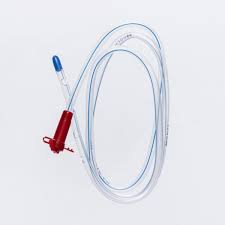
Dietary Supplements Guide: An Introduction to Their Purpose
Welcome to our comprehensive guide on supplements! Whether you’re curious about improving your health or seeking to enhance your wellness routine, this resource covers everything you need to know about supplements and their impact on your well-being.

Supplements have become a popular topic in the health and wellness industry. Many people believe that taking supplements is a surefire way to improve their health and prevent diseases. However, is this really the case? Do they always make you healthier? In this post, we will explore the truth behind this claim.
What are Supplements?
They are products that contain vitamins, minerals, herbs, or other substances that are intended to supplement the diet. They come in various forms, including pills, capsules, powders, and liquids. They are not meant to replace a healthy diet but rather to complement it.
The Benefits of Supplements
They can provide many benefits to our health. For example, they can help us meet our daily nutrient requirements, which is especially important for people who have dietary restrictions or deficiencies. Additionally, some have been shown to improve specific health conditions. For instance, omega-3 fatty acids have been found to reduce inflammation and lower the risk of heart disease. Moreover, supplements can also enhance athletic performance. Athletes often take these to improve their endurance, strength, and recovery time. Creatine, for example, is a popular supplement among bodybuilders and weightlifters because it can increase muscle mass and strength.
The Risks of Supplements
While they can be beneficial, they also come with risks. One major concern is that they are not regulated by the FDA in the same way that drugs are. This means that manufacturers do not have to prove the safety or effectiveness of their products before they hit the market. Moreover, some can interact with medications or cause adverse effects. For example, high doses of vitamin E can increase the risk of bleeding, while St. John’s wort can reduce the effectiveness of certain medications. Another issue with supplements is that they can be expensive. Some can cost hundreds of dollars per month, which can be a financial burden for some people. Additionally, supplements are not a substitute for a healthy lifestyle. Taking them does not give you a free pass to eat junk food or skip exercise.
So, do supplements always make you healthier? The answer is no. While they can provide benefits, they also come with risks and limitations. It is important to remember that they are not a magic pill that can solve all of our health problems. Instead, they should be used as part of a comprehensive approach to health that includes a balanced diet, regular exercise, and other healthy habits. If you are considering taking supplements, it is important to talk to your healthcare provider first. They can help you determine which supplements are right for you and how to take them safely. Additionally, it is important to choose reputable brands that have been tested for safety and quality.
In conclusion, supplements can be a useful tool for improving our health and well-being. However, they are not a cure-all and should be used in conjunction with other healthy habits. As with any health decision, it is important to weigh the risks and benefits before taking supplements. By doing so, we can make informed choices that support our overall health and wellness.
Disclaimer: The information provided in this content is for general informational purposes only. It is not intended as medical or healthcare advice, diagnosis, or treatment. Always seek the advice of a qualified healthcare professional with any questions you may have regarding a medical condition or healthcare decisions.
















